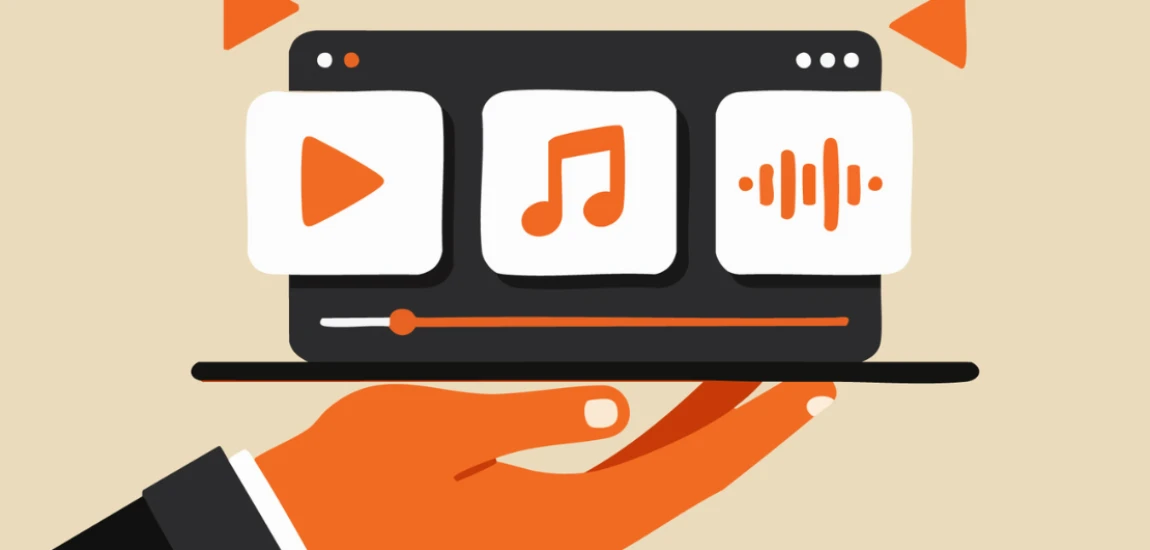The Rise of Audio-Only Entertainment

In recent years, the rise of audio-only entertainment has transformed how people consume stories, news, and even education. From podcasts and audiobooks to live audio platforms like Clubhouse and Twitter Spaces, sound-first content is enjoying a major cultural renaissance. Unlike traditional media that demands full attention, audio-only platforms allow listeners to multitask—driving, cooking, working out, or commuting—while still being fully engaged. This convenience factor is one of the main reasons audio entertainment has become so popular.
Another major driver is accessibility. Audio-only content reaches audiences who may not have the time or ability to sit down and watch a video or read a book. As a result, audio platforms are democratizing entertainment, making it easier for anyone to create and share content without the need for expensive production equipment.
For brands and creators, the rise of audio-only entertainment also opens new doors for connection. Unlike video, which often emphasizes visuals, audio builds intimacy through voice. A podcast host, for instance, can establish a loyal audience by speaking directly into listeners’ ears every week. This human connection creates a sense of trust and community that is harder to replicate on other platforms.
In short, the world of entertainment is no longer just about visuals—it’s about sound, storytelling, and accessibility. The audio revolution has begun, and it’s here to stay.
The Podcast Boom: Redefining Storytelling

Podcasts have been at the forefront of the audio-only entertainment revolution. With millions of shows covering everything from comedy and business to health and true crime, podcasts are reshaping how people learn and engage with media. Unlike traditional radio, podcasts give creators the freedom to produce long-form or niche content without worrying about strict programming schedules.
Accessibility and Niche Appeal
One of the key strengths of podcasts is their ability to target niche audiences. Whether someone is interested in gardening tips, space exploration, or personal finance, there’s likely a podcast tailored to that interest. This has created a world where listeners can find hyper-personalized content that traditional media would never prioritize.
The Power of Long-Form Content
Podcasts also provide space for deeper conversations. While social media thrives on short bursts of content, podcasts allow hosts and guests to explore complex topics over extended episodes. This makes podcasts particularly appealing for audiences who want more than just surface-level engagement.
Monetization and Growth
The podcast industry has grown into a multi-billion-dollar market, with advertisers recognizing the value of intimate, engaged audiences. Hosts often become trusted voices, making podcast advertising more effective than traditional banner ads or even influencer marketing.
With this combination of accessibility, authenticity, and monetization opportunities, podcasts have cemented themselves as one of the most powerful forces in audio-only entertainment.
Audiobooks: From Niche to Mainstream

Audiobooks, once a niche format, have now become a mainstream staple of audio-only entertainment. Thanks to platforms like Audible, Scribd, and even Spotify’s audiobook offerings, millions of listeners are swapping printed pages for narrated stories.
Convenience for Busy Lifestyles
The biggest appeal of audiobooks is convenience. People can enjoy novels, biographies, or self-help books while driving, exercising, or even cleaning the house. This fits perfectly into modern, fast-paced lifestyles where finding time to sit and read can be challenging.
Expanding Literacy and Accessibility
Audiobooks also break barriers for accessibility. For those with visual impairments, dyslexia, or other reading challenges, audiobooks provide an inclusive way to enjoy literature. This accessibility factor has widened the reach of publishing and introduced storytelling to entirely new audiences.
A New Era of Storytelling
Narration adds another dimension to books. A skilled voice actor can bring characters to life, enhance suspense, and deliver emotional depth in ways that traditional text alone cannot. In some cases, authors themselves narrate, giving fans an even more personal connection to their work.
The audiobook boom proves that literature is evolving with technology, blending traditional storytelling with the power of voice.
Social Audio: The New Frontier

While podcasts and audiobooks focus on pre-recorded content, social audio platforms emphasize real-time conversation. Apps like Clubhouse, Twitter Spaces, and Discord voice channels have pioneered this space, allowing people around the globe to connect through live discussions.
The Appeal of Real-Time Connection
Unlike podcasts, which are edited and polished, social audio thrives on spontaneity. Listeners can jump into conversations, ask questions, and interact directly with speakers. This creates a sense of community that feels both intimate and immediate.
Democratization of Voices
Social audio platforms empower anyone with a smartphone to host their own discussions. From business leaders to everyday enthusiasts, these platforms provide a stage for diverse voices that may otherwise be overlooked in traditional media.
Challenges and Opportunities
While social audio faces challenges like moderation and privacy concerns, its rapid rise shows that people crave authentic, unscripted conversations. For brands, it also offers an opportunity to engage audiences in a more human and less polished way than traditional advertising.
Social audio may still be evolving, but it represents one of the most exciting frontiers in the audio-only entertainment space.
The Psychology of Listening: Why Audio Connects Deeply

The rise of audio-only entertainment isn’t just about convenience—it’s also about psychology. Humans have relied on oral storytelling for thousands of years, long before the written word. Audio taps into this primal connection, making it one of the most powerful ways to share stories and information.
Intimacy Through Voice
Listening to someone’s voice creates a sense of closeness that reading or watching often can’t match. A podcast host feels like a friend, while an audiobook narrator becomes a trusted guide. This sense of intimacy fosters loyalty and long-term engagement.
Multitasking and Cognitive Load
Audio allows listeners to absorb information without overloading their visual senses. People can listen while engaging in other activities, which makes it easier to fit into daily routines. This low barrier to entry has fueled audio’s growth.
Emotional Impact of Sound
Sound has a unique ability to trigger emotions. Music, tone, and pacing all play critical roles in shaping how listeners perceive content. This makes audio a powerful tool for both education and entertainment.
The psychological depth of audio explains why this medium resonates so strongly with global audiences.
The Future of Audio-Only Entertainment

As the rise of audio-only entertainment continues, the future looks promising. With advancements in technology, artificial intelligence, and immersive sound, audio platforms are set to evolve even further.
Integration with Smart Devices
Smart speakers and voice assistants like Alexa and Google Home have already made audio entertainment more accessible. As these devices become more sophisticated, they will likely serve as primary hubs for audio-first experiences.
AI and Personalized Content
Artificial intelligence is also shaping the future of audio. From AI-generated voices to personalized recommendations, technology will make it easier for listeners to discover content that fits their interests.
Expanding Creative Possibilities
We may also see new storytelling formats that blend audio with interactive elements. Imagine audiobooks where listeners choose different plot paths or podcasts enhanced with immersive soundscapes. The possibilities are endless.
The future of audio-only entertainment is not just about convenience—it’s about reimagining storytelling in innovative ways.




